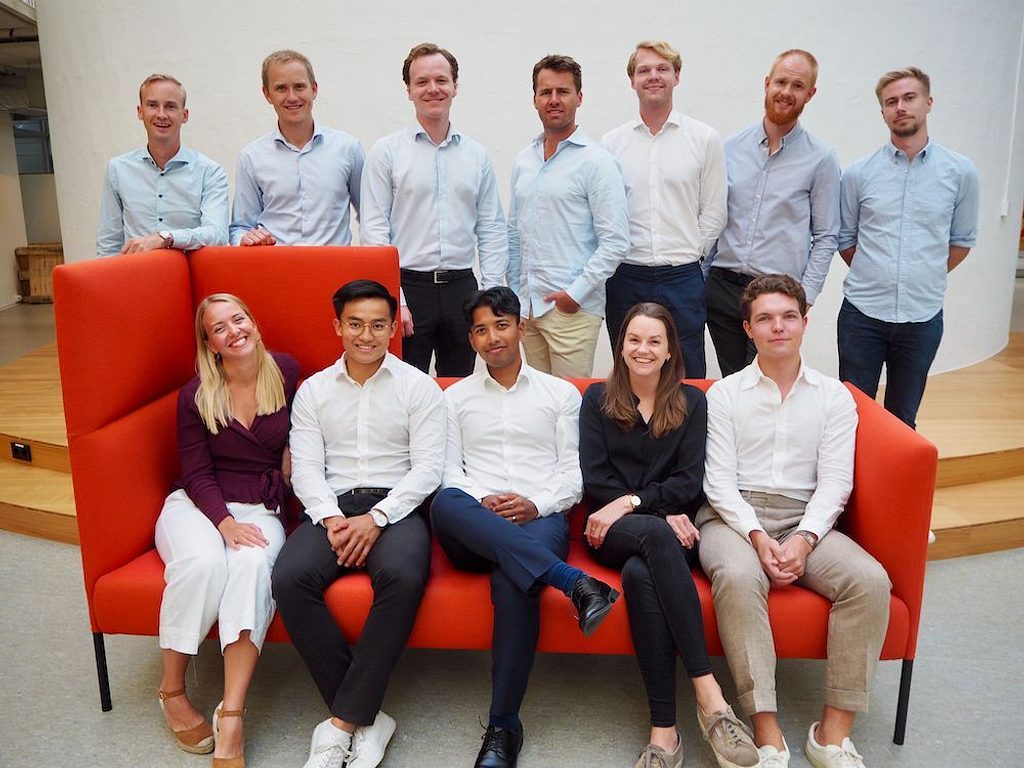The 7 roadblocks of identifying a stranger in a strange land
Once a company decides to cross borders, they can't scale fast enough, but there are plenty of bumps in the road. One of them, is an insurmountable identification process – in every single country. Moving your SaaS platform across borders is tough. This is how FundingPartner succeeded.
# Roadblocks when trying to scale internationally
When any company of any size wants to go big – or bigger – they go out. Not out of business, of course, but out of the country. Expanding is often something you can do when you've first been through the proving ground of your homeland. Moving on to other countries is pretty cool, but also very difficult.
"A few years ago we were three businessmen who basically made a totally new technological platform for crowdfunding. When we eventually saw no red flags on the horizon, we just had to get this 'plane off the ground'", says Geir Atle Bore, CEO of scale-up company FundingPartner, who now after five years, have flown their invention into new territory, but not without turbulence.
# Flying into new territory – with turbulence
Let's take a quick u-turn and take a look at the autumn of 2017, when Geir Atle Bore, a former McKinsey associate partner from the Norwegian countryside, saw an ocean of small and medium-sized businesses needing loans from the bank, but few banks were willing to take the risk. There were also, apparently, lots of people who wanted to invest in exactly these types of small businesses – on everything from an expanding bakery, to green real estate projects and new fun tools for carpenters, fishermen and retired people. So, FundingPartner became the helping hand between those in need of a loan (over 100 companies by now), and those wanting to give it (13,000 people by now) in a secure, quick and easy way, via an app.
"But the international road can be a bit bumpy", says Geir Atle, listed by Kapital Magazine as one of the rising business stars in their '40 under 40' list.
# Avoiding the international 'bureaucracy tsunami'
FundingPartner is worth 300 million kroner and has created 1300 jobs in Norway. What comes next? Becoming a 'partner in fund' in neighbouring countries like Sweden and Denmark, of course! Even though Sweden, Denmark and Norway are very similar both by language and standards of living, they have completely different ways of dealing with starting a business, and especially the process of identification validation. "There are so many strange codes, technological quirks, paperwork, various rules and ways, back and forth. It felt like there was a 'bureaucracy tsunami' coming our way", says Geir Atle Bore, who wanted to expand, preferably yesterday.
"We started to think about expanding in 2019, just before Covid. We worked from home trying to manage the various national processes in order to set up the business and launch. It was not easy, at all."
What were your overall challenges?
"Ohh…", he says before taking a deep breath.
# “Who does what? When? How?” So many questions
"Let's see. We needed to figure out how to integrate our platform into the different Swedish and Danish technological systems. In Sweden, we needed a Swedish bank account, and regulatory permission to run a business. We had to get control over the mortgage rules for buildings in Denmark. Since many of our clients are within real estate, we had to deal with different ways of doing credit checks, understanding the investor market in each country, their commercial rules, judicial processes, documents and regulations for the users…as well as hire local people and deal with local language and culture", says Bore.
But that's it, then, right?
"Nope, then there is the very intricate and distinct id-system each country has".
Ok? An easy click away for a skilled programmer?
"Not at all!"
Let's hear it?
"We had one singular data point: Norway, our home country. You would think other countries also had similar solutions, right? But no. In Denmark, we realised they have different signature patterns for different services. Sometimes people had to add a specific private health card on top of a digital sign-in to access the software they wanted, so we wondered: Was this something we definitely needed to do as well, or could we skip it? So we took the safe route and said “yes, probably”. We realised that the user hated the stress of going home to find this card they needed to take a picture of, ending in us losing these people as customers. Of course, we wanted the user experience to be smooth, but also follow the national rules. But what were the actual rules in each new country? Who does what? When? How? All that was not easy to figure out", Geir Atle says with a sigh.
I feel my heart rate speeding up just by listening to this!
"But there is more…", he says.
# 7 things you must overcome to identify users across Europe
One task becomes many and multiplied for each country.
# 1. 30 different ways, one for each country.
With nearly 30 countries in the EU, you may have to implement nearly 30 completely different technical eIDs into your solution.
# 2. You must comply with laws in each country
Each country has different complex local laws and regulations you need to comply with.
# 3. Hardware may be required.
You need access to specialised hardware to create advanced and qualified document signatures.
# 4. Each bank may also have their own standard
In Finland, for example, there are 17 separate banks, which you must go to individually to gain credentials if you're not an authorised service provider.
# 5. Identifying one user is not one task, but many.
So many that you would ideally need a common API to connect to numerous eIDs, registry lookups, social logins, and other technologies.
# 6. Standards unfamiliar to your developers
You may need to understand encryption schemes, and algorithms not commonly used by developers.
# 7. Information is stored in a unique way for every country
Each country may have different formats for names and dates of birth, for example. Some countries may start with the first name, others with the last name. It’s all very confusing!
# What is the consequence of these difficulties?
Because of all these difficulties, was there a delay in revenue for you?
"For sure!"
FundingPartner was scaling slower than needed?
"Definitely. And as a start-up, your main value is growth. If the topline halts and flattens out, people will think you´re not all that anymore", Geir Bore says.
Would it be correct to say that it will cost you, as a company, to expect something tricky like this on the horizon of your journey to expand?
"Yes, both lots of money and time. Because who will figure out all of this technological signature stuff in Sweden, and then in Denmark, and then who knows, the next country with their own rules? Better to hand that job over to experts", Geir Atle says.
Who helped you?
"Signicat helped us with these insurmountable tasks in each country. Sparring with their experts made scoping and the implementation go very smooth and quick", he says.
So. Boom! FundingPartner was then launched in Denmark and Sweden almost simultaneously in August 2021, where even more people and small businesses were able to find each other and investments could start. But clouds were building up, and 'the plane' had not yet landed safely on foreign ground.
# The mystical '10-percent problem' in Denmark
Something was going on in Denmark. The country had used the same type of id-signature for over 10 years. Meaning Apple's first iPhone was not even around when the system was designed. Denmark was about to change it completely and no-one knew when. It's true. Different countries can suddenly decide to change their digital identity schemes, which means a brand new business orienting themselves in foreign waters will have to adapt to that country’s timeline. With no good information nor real commitment to how that timeline will work, it's like being told the locks to your apartment are about to be changed, but not knowing exactly when it will happen!
"In the autumn of 2021, we were happy to finally be live in Denmark. So much talk and work and here we are! Here is the link. Go invest! But after a month we started to get feedback from Danish users, tech-savvy people in their 30s and 40s, who had tried to register as investors via our link, but just could not do it. We asked them to try again and again, but still no success. What was happening?"
–Signicat solved the complexities around identification and digital signatures for us, both technically and legally.
# Id-hiccup: putting reputation on the line
Denmark had their old login-system working, while the new one was starting to be implemented, overlapping each other. At the time of launch, FundingPartner used the old version. Why then, were 10 percent of the Danish users, who also used the old version, just not able to use their service? There was a spanner in the works because everything was implemented correctly from FundingPartner's side.
"We were wondering if we had done something very wrong, that was our hypothesis. But maybe Signicat was at fault", says Bore.
Both Norwegian companies burned the midnight oil to find the issues as quickly as possible. Biting their nails, since a hiccup like this – just after the big dive into a new country – a critical moment for a new growing business, could mean loss of both revenue and reputation.
"In the end, Signicat figured it out. It was neither of us. It was a problem with Denmark's digital identity itself, a technical bug", says Geir Atle, who then was advised by Signicat to move on to the new system right away.
"That transition went much faster than we thought was possible. Thanks to Signicat and their very precise APIs which made it possible to introduce our app, almost like a plug and play setup.
So today, all is good, the app works in three Nordic countries – possibly more to come. The lesson being that each country in the world seems to have their own way of identifying customers digitally. Coding for each of them is such a big task, that businesses of all sizes are better off leaving it to a full-time service provider.
"Signicat solved the complexities around identification and digital signatures for us, both technically and legally. So if you are a start-up or scale-up company and have ambitious plans on expanding into new countries, it would be smart to use Signicat's solutions from day one."

